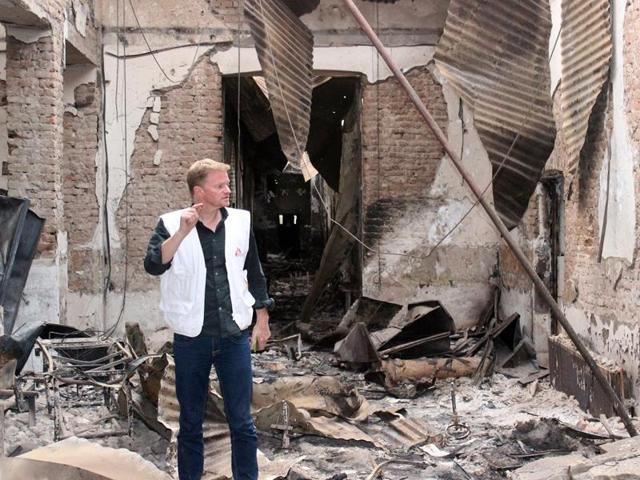Afghan TV stations face Taliban threat after Kunduz
Already forced to operate in one of the world’s most hostile environments for journalists, Afghan television stations are now being openly targeted by Islamist insurgents in a widening insurgency that threatens cities across the country.
Already forced to operate in one of the world’s most hostile environments for journalists, Afghan television stations are now being openly targeted by Islamist insurgents in a widening insurgency that threatens cities across the country.

The Taliban’s brief capture of the northern city of Kunduz last month, the first time in 14 years of fighting it had taken a provincial centre, underlined how far its military strength has grown since NATO forces ended combat operations last year.
Amid reports of summary executions, kidnappings and other abuses, the Taliban also issued a grim warning to two Afghan television stations, Tolo News and 1 TV, designating them as “military objectives”.
Both stations had reported allegations of rape by Taliban fighters during the fighting in Kunduz, incensing the militant Islamist movement, which accused them of spearheading a US-sponsored propaganda campaign.
It said reporters and offices of the channels would be considered “enemy personnel” and would be “eliminated”.
Tolo News, Afghanistan’s first 24-hour news channel, has been one of the most active reporting operations in the country for years, employing dozens of journalists, many in volatile provincial areas.
“It’s unprecedented, I’ve never seen this,” said its director, Lotfullah Najafizada.
Part of Afghanistan’s largest private broadcaster, the station has won a reputation for fast, credible reporting in a shifting media landscape that features scores of newspapers, broadcasters and online news sites. It insists it was scrupulous in reporting all sides of the Kunduz fighting, including allowing Taliban spokesmen a right of reply.
“For us, it was the biggest story of the past 14 years,” Najafizada told Reuters in an interview at the group’s heavily guarded headquarters in Kabul. “We dispatched our biggest team to the city. About 10 reporters were on the ground.”
Press Freedom
The Afghan government, the main journalists’ association and international organisations including the United Nations condemned the threats, while media groups pledged to deny coverage to the Taliban if reporters were harmed.
“This is not going to affect the way we work, this is not going to affect the agenda for us as TV channels,” Najafizada said.
But the threat nonetheless adds a dangerous new complication for local journalists working in a country already ranked as low as 122 out of 180 in the World Press Freedom Index, a gauge of media freedom compiled by the group Reporters Without Borders.
Earlier this year, Human Rights Watch underlined the threat in a report that pointed to a mix of threats ranging from government officials trying to intimidate editors and reporters to the Taliban using threats and violence to influence coverage.
The new media landscape has also attracted criticism from conservative Islamic groups including the Afghan Ulema council, an influential group of scholars and religious leaders long opposed “un-Islamic”, “immoral” and “vulgar” programming.
Yet for all its hardline militancy, the Taliban has in recent years operated a sophisticated media and communications operation, with regular tweets and press statements from spokesmen who speak regularly to Afghan journalists.
Its decision to turn on Tolo News and 1 TV adds to the uncertainty surrounding the future direction of the group under its new head Mullah Akhtar Mansour, who took over the leadership earlier this year.
“Although Kunduz was a brief military gain for the Taliban, the media coverage of the Taliban’s atrocities, exposed their true face,” said Najib Sharifi, head of Afghan Journalists Safety Committee.
“We strongly condemn the Taliban’s statement and consider any attack a war crime.”



